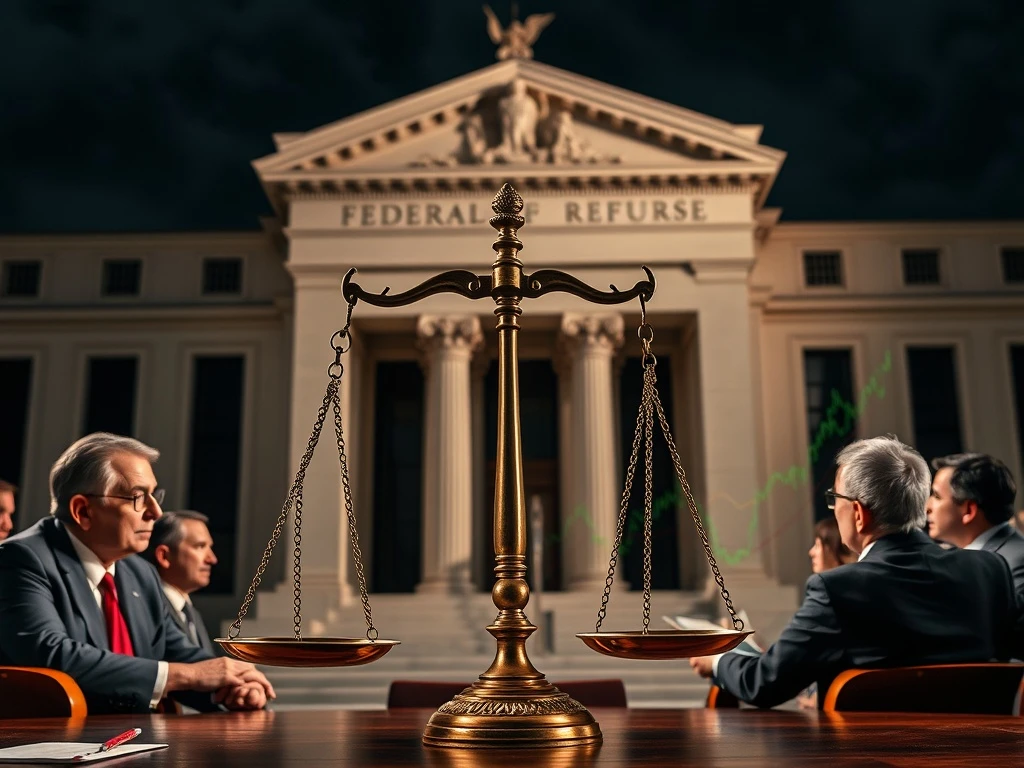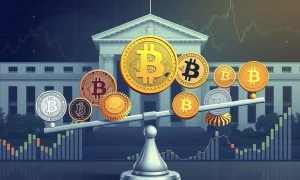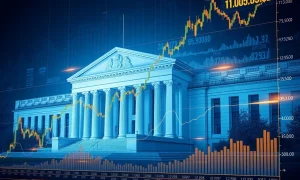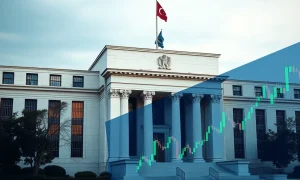President Donald Trump’s unprecedented legal challenge against Federal Reserve Governor Lisa Cook threatens to shatter a 112-year tradition of central bank independence, potentially triggering widespread economic instability and market volatility that could impact global financial systems.
The Fed Independence Crisis Unfolds
Trump’s attempt to remove Governor Cook represents a direct assault on Federal Reserve independence. Legal experts immediately questioned the president’s authority to dismiss a sitting Fed governor without proven misconduct. This confrontation marks the first serious challenge to the central bank’s autonomy in over a century. The case currently unfolding in federal court could establish dangerous precedents for political interference in monetary policy.
Historical Precedents and Economic Dangers
Economists warn that compromising Fed independence historically leads to severe economic consequences. During the Nixon administration, political pressure on monetary policy contributed significantly to the 1970s inflation crisis. Similarly, countries that have politicized their central banks typically experience:
- Higher inflation rates due to politically-motivated interest rate decisions
- Currency depreciation as international confidence erodes
- Reduced foreign investment from institutional uncertainty
- Weaker stock market performance amid policy unpredictability
Legal Battle Over Institutional Integrity
The courtroom showdown centers on whether Trump can legally remove Cook based on unsubstantiated mortgage fraud allegations. Cook’s attorney, Abbe Lowell, maintains these claims lack evidence and represent political motivation. The Federal Reserve Act specifically protects governors from removal without valid cause, creating a crucial legal barrier against presidential overreach. This case tests the strength of those protections.
Potential Economic Consequences
If Trump succeeds in replacing Cook, his appointees would likely control the Fed board majority. This shift could produce several economic outcomes:
- Short-term economic boosts from artificially low interest rates
- Long-term inflation risks from politically-driven monetary decisions
- Global market instability as Fed credibility diminishes
- Currency value fluctuations affecting international trade
Broader Implications for Monetary Policy
The Federal Reserve currently navigates complex economic conditions including slowing hiring and rising inflation pressures. Chair Jerome Powell has signaled cautious rate adjustments based on economic data. However, a politically-influenced Fed might prioritize short-term electoral gains over data-driven policy decisions. This approach could undermine efforts to maintain price stability and sustainable economic growth.
Global Perspective on Central Bank Independence
International financial markets closely watch this challenge to Fed independence. Global investors typically view independent central banks as more credible institutions. Countries with politicized monetary authorities often face higher borrowing costs and reduced foreign investment. The outcome of this legal battle could influence how other nations perceive U.S. economic governance and institutional stability.
Future of Federal Reserve Governance
The court’s decision will establish critical precedents for future presidential authority over the Federal Reserve. A ruling favoring Cook would reinforce Fed independence protections. Conversely, a decision supporting Trump could embolden future administrations to challenge central bank autonomy. This case ultimately questions how democratic accountability balances with technocratic decision-making in modern economies.
Frequently Asked Questions
What is Fed independence and why does it matter?
Fed independence refers to the central bank’s ability to make monetary policy decisions without political interference. This autonomy matters because it allows policymakers to focus on long-term economic stability rather than short-term political considerations, ultimately benefiting sustainable growth and price stability.
Can a president legally remove a Federal Reserve governor?
The Federal Reserve Act allows presidential removal of governors only for cause, not for policy disagreements. This legal protection ensures that monetary policy decisions remain insulated from political pressure and presidential preferences.
What economic risks accompany political interference in central banking?
Political interference typically leads to higher inflation, currency instability, reduced foreign investment, and weaker long-term economic performance. Markets generally distrust central banks that appear politically influenced rather than economically focused.
How might this case affect average Americans?
Compromised Fed independence could lead to higher borrowing costs, reduced purchasing power through inflation, retirement account volatility, and overall economic uncertainty that affects job security and wage growth.
What historical examples show the dangers of politicized central banks?
The Nixon administration’s pressure on the Fed contributed to 1970s stagflation. More recently, countries like Turkey and Argentina experienced severe economic crises after political leaders undermined central bank independence.
How could this situation impact global financial markets?
Global markets might react to diminished Fed credibility through dollar depreciation, increased market volatility, higher risk premiums on U.S. assets, and reduced confidence in American economic leadership worldwide.








